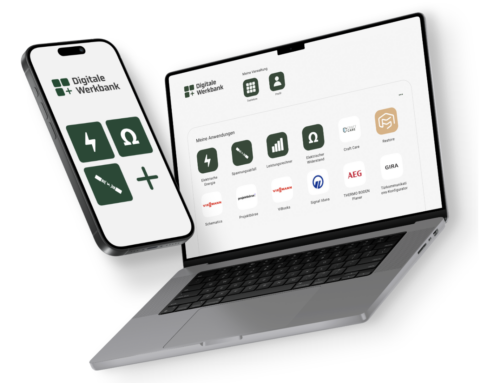Cloud-based ERP systems for the real estate and housing industry
ERP systems have been very popular for a long time in various industries. Enterprise resource planning systems primarily pursue the goal of cost reduction and process standardization. ERP solutions enable the holistic mapping of a company’s resources in IT systems, making process flows more transparent and thus significantly more efficient and effective.
They are characterized by their modular structure, which allows different business areas to be networked and communicate with each other. Thus, an ERP system extends far beyond a merchandise management system or a simple customer relationship management solution and enables additional implementations such as financial accounting. The entire data management and monitoring is thus simplified and optimized.
A comprehensive software that enables automated communication between the individual systems is not only gaining in importance today, but is already essential for many companies in order to exist on the market and remain competitive. While the usefulness of such a system has been obvious for years, especially for the manufacturing industry, the increasing complexity in all sectors of economy has led to other sectors becoming aware of the advantages of an ERP system with regard to their entire value chain. Among these are the housing and real estate industry.
The CAFM solutions that have been used in practice for a long time, which describe computer-aided facility management, are no longer sufficient to address the complex tasks of real estate management and thus project management, asset management, portfolio management and building management. These fields should therefore also find their place in IT applications and be embedded according to reality in order to bring together all business and technical management processes of real estate, in line with the digital era.
The best way to do this is with cloud applications, which, unlike on-premise solutions, do not use a server but a web-based approach. In this case, the software program, storage space and computing power are accessed via the Internet, which means they can be accessed from any mobile device or desktop. In addition, this type of software simplifies interaction with all external actors, such as service providers or tenants, and increases flexibility, as the cloud provider and software packages can be selected and changed according to the respective requirements.
Trends such as “Short Term Rentals” or “Temporary Living”, which are being taken up and driven forward by start-ups in particular, are rapidly changing the real estate market. Regulatory intervention also means that changes in business processes must be implemented at short notice. A central cloud-based software, which takes into account many sub-areas from renting to maintenance and dunning, for example, will be indispensable in the future and will optimize the cooperation and communication of all parties involved.
SAP offers the probably best known ERP solution for real estate management with “SAP Cloud for Real Estate”. Another provider is “Haufe axera” whose solution offers a cloud-based ERP solution for housing companies, property management companies and the housing industry. The companies in the DACH region also include Aareon’s cloud solution “Aareon RELion” as an industry solution, which consists of a basic package that can be extended with additional modules (e.g. from Aareon Smart World). In addition to its classic Microsoft Dynamics 365 solution, Microsoft also offers an ERP system with first extensions tailored to the property sector.
Other solutions or extensions on the market are offered by Datatrain (view on Propinnovators.com), the GAP Group, Hypoport or the Nemetschek Group, among others.
You want to learn more about ERP systems or ERP implementation partners in the housing and real estate industry? Are you interested in interfaces or shared services? Or are you curious about the latest start-ups in this field? Then get in contact with us. We look forward to your questions and comments.
Or have a look at the PropTech Startup Guide or the plattform Propinnovators to find out more about digitization and innovations in the real estate and construction industry.
About Ambivation

Ambivation connects innovative companies and startups for cooperation and innovation partnerships. As an innovation consultancy and matchmaker, Ambivation promotes cooperation between established companies and startups within the framework of concrete customer, supplier and research partnerships. We support companies in the identification of needs, startup identification, startup evaluation and cooperation initiation with startups. Formats such as research on relevant startups, startup monitoring, strategic cooperation consulting or event formats such as startup tours serve this purpose. Our monthly newsletter also provides information on current examples of cooperation and events.






